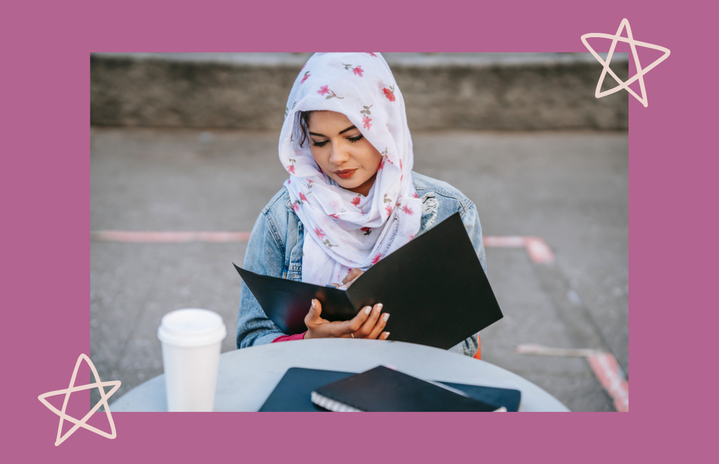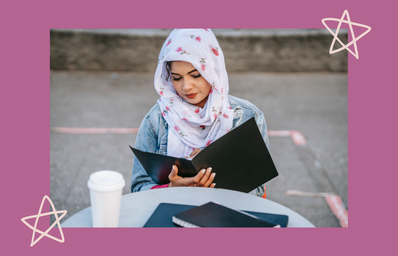Note: This article is written from my unique perspective of practices and interpretations on Islam, and I wanted to share my latest Ramdan and Eid experiences for others who might be interested in learning more about other Muslims’ practice stories.
Growing up, I have always had an outside, unique feeling of interpretation when it comes to the way I celebrate or recognize the time of Ramadan and Eid — or any other day as a Muslim for that matter. Especially coming into my early 20s as a student on a college campus where many memories come from going to parties or bars with your friends, it can feel a little weird doing that in a time where peers practicing the same religion are at home preparing for Sabah.
I have always considered myself as the black sheep of the generation of Bosnian-Muslims that I grew up with. I’ve never been very involved inside my culture like befriending many, going to the Mosque, or being involved in the folk dance group until college, but I value the culture that I am raised in inside my family. The culture of family and the traditions I built inside my home is more important to me than publicizing to others how else I might be a good traditional Bosnian. In this article, I will write about certain practices or beliefs I have that explain why I might not seem the most traditionally based Islam practitioner to others.
Ramadan
While I may not have fasted in the traditional sense that Ramadan is known for this past month, I like to practice this time of self-reflection by making promises to and respecting Islam, myself, my family, and my friends in unique ways. For instance, I told myself and everyone that I would not partake in drinking; this doesn’t mean that I wouldn’t go out and have fun with my friends, but just that they would have a designated DD for the month. I have also had many other self-reflective moments with friends and family in the way of realizing what my values might be, what I am looking for from others or vice versa, and how to overall better any sort of relationship I have or am seeking.
I won’t sit here and lie to you that I haven’t had FOMO (fear of missing out) or been tempted at times, and that is partly due to the drinking culture that many of us know about college. It can feel off-putting getting a look or a demeanor from a bartender saying, “Really?” for ordering a lemonade while my friends are ordering vodka sodas. I guess what I am trying to say is, how come it is frowned upon for a person in a group to order non-alcoholic beverages with a sincere justification or not? If anything, I feel that that should be celebrated and encouraged. At the end of the night, getting home by midnight, in bed not worried about the hangover to come, I feel like a better version of myself knowing I went through a fun social setting without a drink in my hand, and knowing my friends and I are all home safe.
Some may see this as selfish, because who am I to make up my own sense of interpretation of a holy month? And I might ask myself the same question after learning more about certain taboos or rules when it comes to being a young woman practicing Islam. Yet, that is what I see this time being about: learning more about yourself and where you stand, and being more accepting of others to become a better person. While the defined practices of Ramadan include objectives like fasting, avoiding negative acts like fighting or gossiping, and resisting sexual relations between wedded couples during fasting hours; the overall goal is to gain more awareness of God and self-discpline values.
Eid
Every year my family and I start off celebrating Eid by waking up at 7 in the morning to shower and get ready for the day that lies ahead. The morning is followed by approximately three different locations with at least three cups of Turkish coffee and meals at each one. I always described this day to my non-Muslim friends like Christmas day; when I was younger, I would wake up, put on a nice outfit and get small gifts from some of my closest family members. As I grow up, and now almost done with my undergraduate days, it’s been tricky managing this day traditionally. The majority of our classmates usually do not have to worry about homework due dates or exams being on a day of a religious holiday, whereas I’ve had to ask to speak to a higher person above a professor for almost being penalized for missing class due to Eid. For instance, I had to take an exam at 8:30 in the morning this year despite it being an observed holiday for me. I have gotten tired of asking professors for their understanding and still not being given the fair choice of submitting an assignment or exam a different day, since my holiday doesn’t get an academic calendar break for it.
Eid al-Fitr lasts three days, April 8-10, as what I call a celebration for finishing Ramadan. This year, not only am I celebrating making it through Ramadan without being passive-aggressively judged into taking a drink, but for the better person I’ve grown into these past 30 days. Not only am I grateful for the fact that I get to celebrate this with my family, but I feel both fortunate and guilty to be able to say that I can celebrate Eid in my home with my family without a war going outside. This is also a subtle reminder that the people of Palestine have not been fasting during the holy month of Ramadan, but were being starved, and still are as humanitarian aid options are being blocked, retreated, or killed. As our moral principle as basic humans, we need to keep fighting for this genocide to come to an end and try to help when we can.
With a family who grew up fighting for their lives just to say they are from Bosnia and are Muslim, I am prideful of where my family is from and what they believe in. That is why I will continue respecting it in the way that I know and understand. That’s not to say that I won’t ever question it. But that’s the best part about being a person during Ramadan — always seeking the best possible answers for myself and others.


